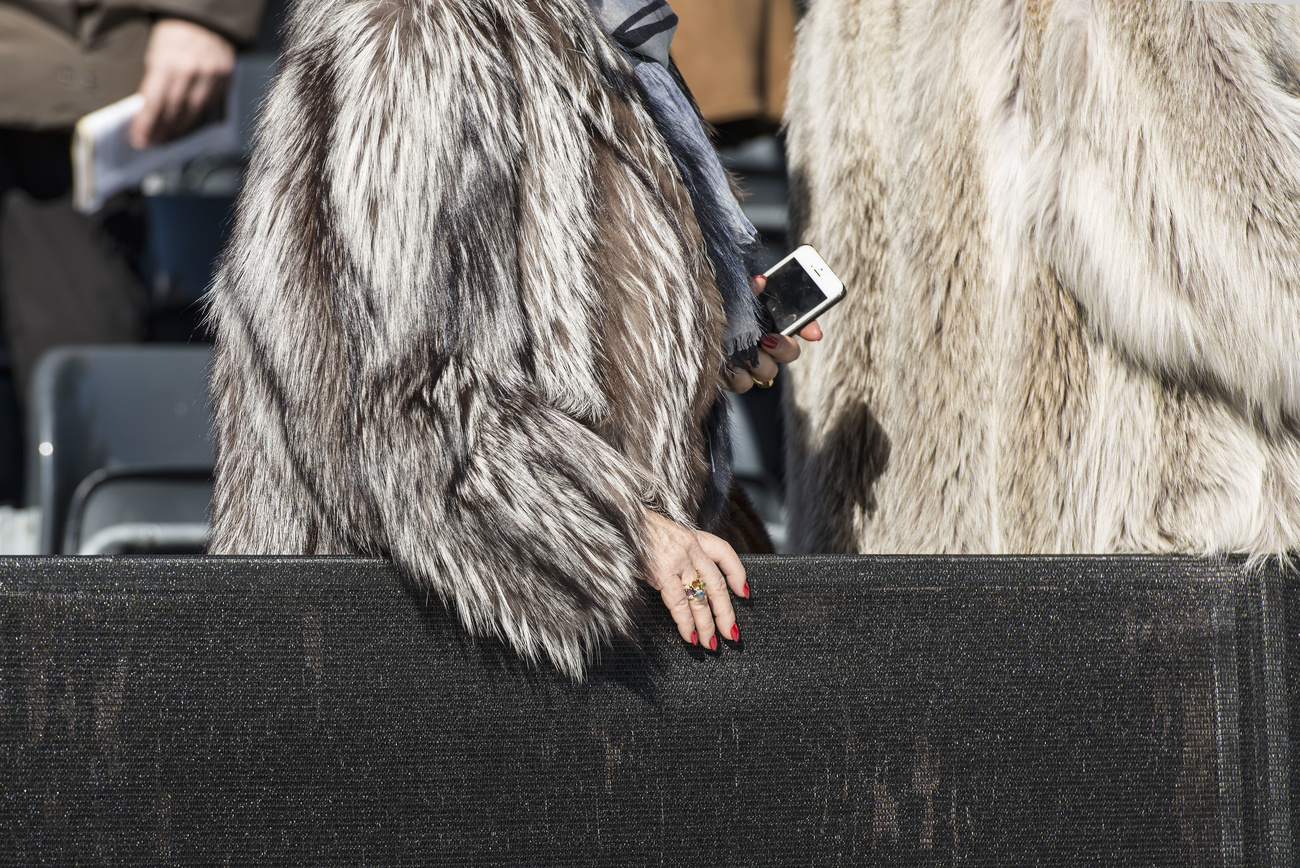
Swiss voters to decide on foie gras and fur imports

Two popular initiatives calling for a ban on foie gras imports and a ban on fur imports have been submitted to the Federal Chancellery. They have 106,448 and 116,140 signatures respectively.
The two petitions, entitled “Yes to a ban on the import of fur from animals that have been mistreated” and “Yes to a ban on the import of fur products manufactured under conditions of cruelty to animals”, are aimed at preventing animal suffering.
The products in question are banned from being manufactured in Switzerland but are “imported en masse”, as the Swiss Animal Alliance (AAS), which launched the texts in June 2022, pointed out on Thursday.
+ Fur trade gets the hairy eyeball
According to its figures, 350 tonnes of fur arrive in Switzerland every year, half of it from China “where animal abuse is a daily occurrence”. For foie gras, imports reach 200 tonnes, for a product that requires “the force-feeding of hundreds of thousands of animals”.
Symbolic value
During this festive season, when foie gras is widely consumed, the submission of these initiatives “also has a symbolic value and raises questions about who we are”, wrote the AAS, which comprises the organisations Animal Trust, Wildtierschutz Schweiz and Animal équité, with the help of several partner associations.
The alliance deplores the fact that “so much suffering is inflicted (on animals) for products that we could do without”. These initiatives “will open up a debate on our inconsistencies”, continued the AAS, for whom “all living beings deserve to be respected and protected”.
In Switzerland, parliament recently decided against a ban on foie gras imports, on the grounds that it would probably lead to purchasing tourism towards France in French-speaking Switzerland. Foie gras will be subject to compulsory declaration.
+ Parliament rejects import ban on foie gras
Almost all European countries ban the force-feeding of geese and ducks. In Switzerland, foie gras production has been banned for over 40 years. The exceptions are France, Hungary and Bulgaria.
This news story has been written and carefully fact-checked by an external editorial team. At SWI swissinfo.ch we select the most relevant news for an international audience and use automatic translation tools such as DeepL to translate it into English. Providing you with automatically translated news gives us the time to write more in-depth articles. You can find them here.
If you want to know more about how we work, have a look here, and if you have feedback on this news story please write to english@swissinfo.ch.

In compliance with the JTI standards
More: SWI swissinfo.ch certified by the Journalism Trust Initiative






























You can find an overview of ongoing debates with our journalists here . Please join us!
If you want to start a conversation about a topic raised in this article or want to report factual errors, email us at english@swissinfo.ch.